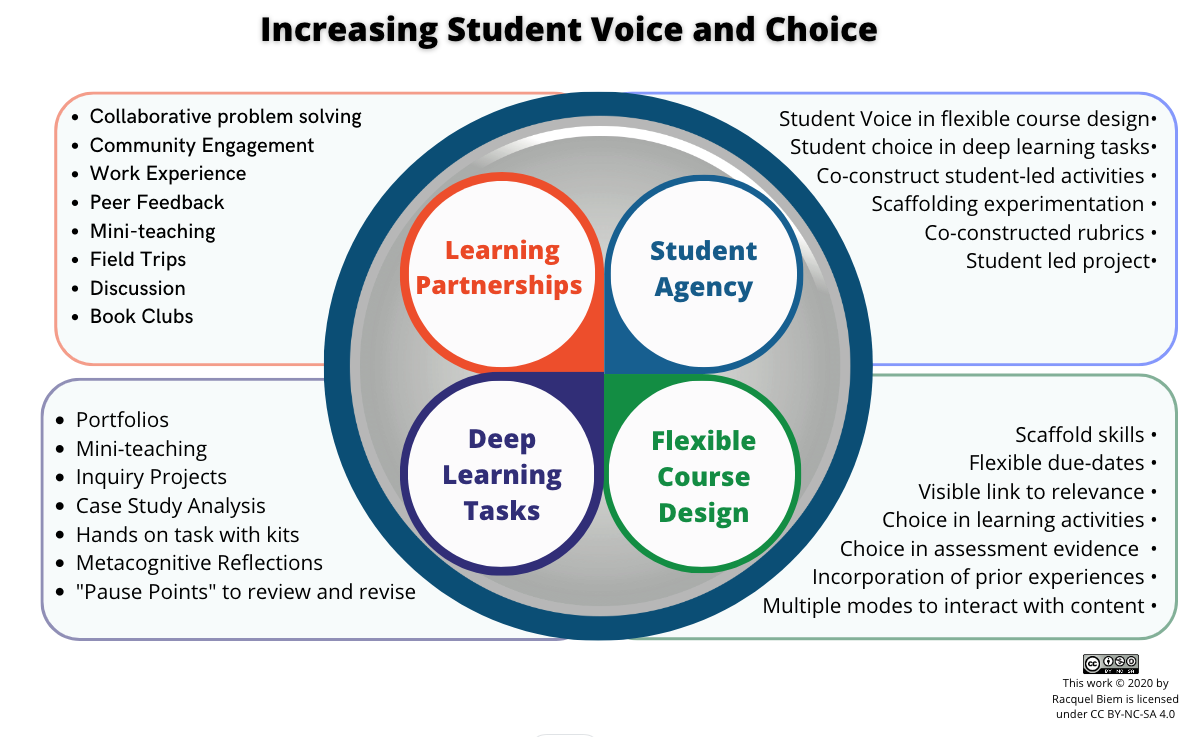Building Community, Remotely
In an online remote context, virtual learning communities (VLCs) allow us to plan for:
- Interaction
- Communication
- Collaboration
This video highlights some of the reasons we might want to develop rich VLCs in remote teaching. Below are some strategies framed from instructor competencies.
Some strategies for developing interaction:
Model participation and practice good nettiquette
- Use Discussion Forums and participate actively
- Steer conversations in the right direction
- Motivate and encourage
Create a safe and supportive environment/network
- Moderate Discussion forum
- Temper the dominant voices in the forum
- Set the tone by being positive
- Encourage and motivate students
- Use introductions, online office hours and e-mail to promote interaction
Incorporate collaborative learning and increased opportunities for students to participate and contribute
- Post short 10 min lectures
- Modify course content to to include Active Learning in between lectures
- When will students contribute and share?
Facilitate meaningful and inclusive interactions
- Organize small group sessions or small group study groups.
- Be willing to put in extra effort to contact students
- Allow anonymous discussion posts
Some strategies for developing communication:
Build a foundation for participants to introduce themselves
- Icebreaker
- Discussion thread
Model prompt, effective and responsive communication
- Answer emails within a certain timeframe
- Set up collaborative FAQs or virtual café where students can share questions and answer them.
- Communicate deadlines and expectations clearly (syllabus)
- Provide prompt feedback on assignments
Evaluate role and monitor amount of instructor contribution to discussions
- Checklists to make sure students are contributing to conversations.
- Check-in with ‘under-performers’ to see if there are accessibility concerns.
Model netiquette
- Demonstrate respect, patience and responsiveness
- Don’t ignore questions.
- Steer conversations in the right direction
- Keep a positive tone
Some strategies for developing collaboration:
Foster Learner-centeredness
- Included Group work
- Incorporate enquiry based and problem based learning
- Promote reflection and self directedness
- journalling
- blogging
Promote and support peer learning
- Peer reviews
- Peer feedback
Encourage, acknowledge, or reinforce student contributions
- Provide opportunities and choice for students to contribute and share
- Posters
- Video, etc.
Empower students to work independently
- Help groups set norms
- How to use breakout rooms or their own zoom rooms
- Promote reflective practice
- Provide rubrics
- Encourage journaling
Readings
Transforming Your Online Teaching From Crisis to Community
Five Qualities of Transformative VLCs
https://www.teachingquality.org/five-qualities-of-transformative-vlcs/
How to Prepare and Moderate Online Discussions for Online Learning
References
Farmer, H. M., & Ramsdale, J. (2016). Teaching competencies for the online environment. Canadian Journal of Learning & Technology, 42(3), 1–17.
https://www.cjlt.ca/index.php/cjlt/article/view/27471/20218
Smith, T. C. (2005). Fifty-one competencies for online instruction. The Journal of Educators Online 2(2). Retrieved from http://www.thejeo.com/Ted%20Smith%20Final.pdf
Schwier, R.A. (2001). Catalysts, emphases and elements of virtual learning communities: Implications for research and practice. https://www.researchgate.net/publication/234622084_Catalysts_Emphases_and_Elements_of_Virtual_Learning_Communities_Implications_for_Research_and_Practice/citations
Thank you to Nazreen Beaulieu for your support in preparing these resources.

